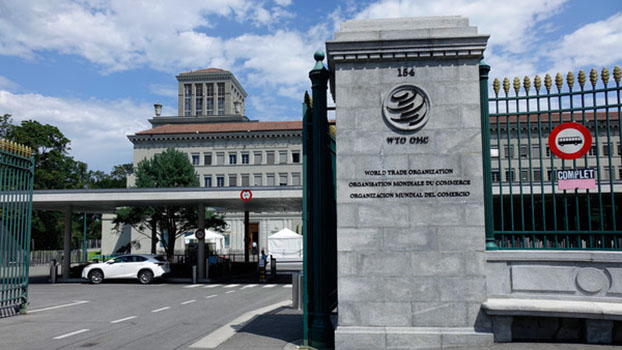
The last few weeks under the coronavirus shock have witnessed acts of incredible solidarity, but also of borderline criminality and absurd, Hollywood-like hijinks. Goods that are in particular demand during the pandemic—such as protective masks, medicines, and medical equipment—are being hijacked, immediately after coming off a plane, by cowboys on the Wild West global market or squirrelled away by rogue elements.
This Wild West mentality is particularly evident in the current crisis, but it also forms part of an international commercial framework geared towards free trade in which policy, dressed up in ideological terms, is tailored to the profit-based interests of the powerful while neglecting weaker countries and members of society. Nowadays, free trade goes well beyond reducing tariffs. The removal of non-tariff trade barriers like social or environmental regulations is used to create a harmonized global economic “level playing field”, consolidating existing structures and blocking bespoke national policies, thereby strengthening global corporations. This may even result in the delivery of a consignment of ventilators that had been planned for years suffering long delays because of a frenzied battle to take over global medical technology companies, making these devices unavailable at a time when they are desperately needed.
The coronavirus crisis is revealing the fragility of global supply chains, which emerged as a result of efforts by the most powerful countries in the World Trade Organization (WTO) and have been cemented by ever more comprehensive trade and investment agreements. As a result, over the years not only have once-prosperous industrial regions been transformed into rusty ruins at an enormous cost to society, but capacities that could have played a role in solving the current supply crisis have been destroyed.
As countries try to secure supplies for their population, the familiar cry of “America First” is now being joined by similar noises from elsewhere—even the EU. The crisis shows that the nation-state and national interests are still the mainstay of “realpolitik”. As US President Donald Trump's trade adviser Peter Navarro put it, “no matter how many treaties you have, ... you run the risk as a nation of not having what you need”. In France, a debate has already started about relocating key lines of production—although whether this really signals the end of neoliberalism, as the chief economist of a French investment bank prematurely claimed, remains to be seen. There are indicators that point to change, but this is no reason to rejoice.
Highly selective changes to the international commercial framework are possible, which will, however, seek to shore up the existing system. Large companies are already beginning to worry about profitable globalized value chains being interrupted, or even broken in the long run. Consequently, the WTO is calling for a return to business as usual as soon as possible, that is to say, a return to a trade system that resoundingly failed in the crisis.
Part of the reason for the system’s failure is how much more vulnerable its cornerstone, the globally unfettered competition of goods, capital, services, and labour, is now than it was before the crisis, as the pandemic tellingly revealed. Even before the coronavirus emerged, these trade arrangements exacerbated inequalities between countries and plunged them into trade wars and environmental disasters, yet this has made no difference in attitudes. As a result, maintaining the status quo will continue to be a priority. Nevertheless those in power know that if we want things to stay as they are, things will have to change.
Given the unpredictability of the crisis’s impact, it is unclear what exactly will change in the international commercial framework, but some aspects are already becoming apparent. These range from the relocalization of key lines of production to an increased role for digitalization in production and authoritarian consolidation of production processes. Restructuring measures already in progress, such as through job cuts, could even be accelerated. It is not the risk to humans that is considered crucial, but the human risk factor.
But could the crisis be used as an opportunity to move away from the free trade system? Those controlling the existing framework are extremely unsettled, forcing them into crisis mode. Ongoing negotiations on free trade agreements have been postponed for the time being because, for example, a chief negotiator had to temporarily self-isolate, and a new modus operandi for international negotiations may have to be found. The WTO Ministerial Conference due to be held in June has already been cancelled, but WTO negotiations on fishery subsidies are continuing for now, while the Mercosur-EU trade agreement negotiations remain a top priority for Germany as the holder of the rotating presidency of the European Council. This has prompted opponents of free trade to demand an unconditional halt to negotiations during the crisis, but that is no substitute for a long-term strategy.
Neither now nor in the future will a move away from the free-trade doctrine be achieved through miraculously converting those who benefit from the existing arrangements, but only when there is irresistible pressure from broad swathes of society. As part of a re-regionalization of the economy, utilizing among other things tools of left-wing protectionism, considerations ought to be made about what can be offered to all those worried about their future, their health, and their jobs. In this way, the indicative restructuring of international trade relations and production relationships could be shaped to fit workers’ needs and, to that end, a bit of steam could be let out of the pressure cooker of international competition.
This could also bolster global solidarity. The United Nations Conference on Trade and Development (UNCTAD) points out that the COVID-19 shock will hit developing countries particularly hard, because decoupling creates room for the kinds of sovereign economic, industrial, and monetary policies necessary for sustainable development. Indeed, we already have blueprints for alternatives to the free trade system, while Cuba, for example, demonstrates its ability to take effective action in the coronavirus crisis while also showing the world what solidarity means.